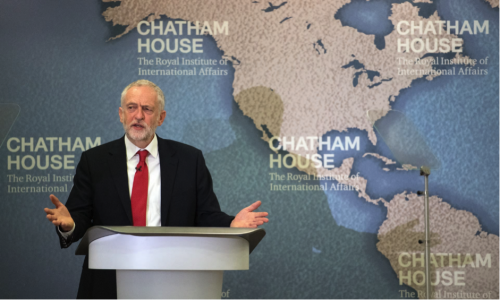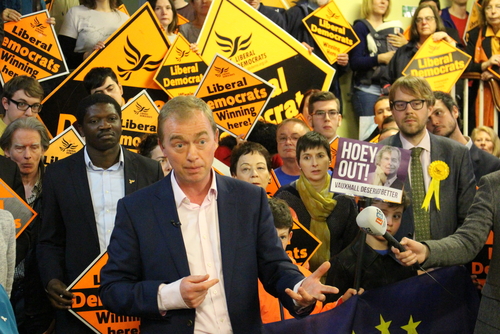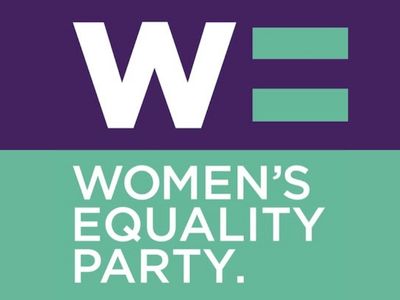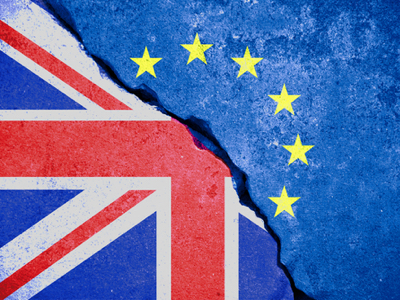Earlier this year, Prime Minister Theresa May announced plans for a snap general election, to take place on 8 June 2017.
At the time, May described the decision as one of “reluctance” but argued that the country needs “strong and stable leadership” to get through Brexit and beyond.
Since then there has been an influx of policies, manifestos and political nit-picking. According to the latest polls, the Conservatives are leading with a large majority. With all this it can be a baffling minefield to know who to vote for and who will benefit Britain the most.
Here WeAreTheCity takes a look at some of the policies and recent news stories from the main parties to help condense the vast information.
The Conservative Party
Leader: Theresa May
Members: Over 149,800 (as of December 2013)
Number of candidates: 638
The Conservative Party, currently the governing party, is leading the election polls. The party is one of the two major political parties in the UK alongside the Labour Party. The Conservatives commonly believe in free market capitalism, free enterprise and a strong national defence.
In their manifesto, the Conservative Party promise to:
- Increase the National Living Wage to 60 per cent of median earnings by 2020
- Introduce 30 hours of free childcare for three and four year olds for working parents
- Increase the personal allowance to £12,500 and the higher rate to £50,000 by 2020
- Scrap free school lunches for infants in England, but offer free breakfasts across primary schools.
- Scrapping the triple-lock on the state pension after 2020, replacing with a ‘double lock’ which will rise with earnings or inflation
- Introduce a statutory right to a year’s unpaid leave to care for family
Read more about Conservative Party news and policies here:
 Theresa May answers voter questions on Facebook live
Theresa May answers voter questions on Facebook live
In an event hosted by ITV news, Theresa May answered questions submitted by the viewing public on Facebook Live. During the session, around 40,000 comments and questions were posted to the prime minister, with May answering 55 questions on a range of subjects.
Prime Minister Theresa May closed her Commons statement on triggering Article 50, saying, “Together build a stronger, fairer, better Britain – a Britain our children and grandchildren are proud to call home.” During her speech, May also highlighted her 12 objectives for negotiations for Britain leaving the European Union.
The Labour Party
Leader: Jeremy Corbyn
Members: 517,000 (as of March 2017)
Number of candidates: 631
The Labour Party is the second of the two main political parties in the UK and is the main contender to beat the Conservatives in the 2017 General Election. Traditionally more left wing, the Labour Party commonly stands for social democracy.
In their manifesto, the Labour Party promise to:
- Create a more equal society, building a world free from all forms of racism, anti-Semitism and Islamophobia
- Scrap tuition fees for students
- Create an economy that works for all – delivering a fairer, more prosperous society
- Introduce more free childcare, expanding free provisions for two, three and four year olds
- End zero hour contracts
- Introduce four extra public holidays each year to mark the national patron saints’ days
- Give all workers equal rights, whether they are part-time, full-time, permanent or on temporary contracts
Read more about Labour Party news and policies here:
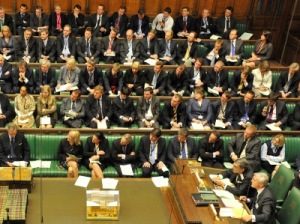 Record number of female Labour candidates to stand in 2017’s General Election
Record number of female Labour candidates to stand in 2017’s General Election
The Labour Party have put forward a record number of female candidates for the General Election on 8 June 2017. Around 41 per cent of the candidates fielded are women, while 59 per cent are men. Nearly 50 record number of black and ethnic minority candidates.
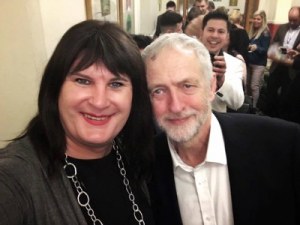 Sophie Cook hopes to be the first openly transgender MP
Sophie Cook hopes to be the first openly transgender MP
Labour candidate, Sophie Cook is hoping to become the first openly transgender MP in the upcoming election. The 50-year-old TV presenter, campaigner and official photographer for AFC Bournemouth was selected by the Labour Party to stand in the General Election.
 Jeremy Corbyn: Labour will put women at the heart of policies
Jeremy Corbyn: Labour will put women at the heart of policies
Labour leader Jeremy Corbyn has pledged to do more to bridge the pay gap between men and women and to focus on supporting victims of domestic abuse.
The Liberal Democrats
Leader: Tim Farron
Members: 82,000 (as of February 2017)
Number of candidates: 629
The Liberal Democrats is the liberal political party of the UK, formed when the Liberal Party and the Social Democratic Party merged in 1988. The party typically stands for reform of the church, drug decriminalisation and a change to the electoral system from First Past the Post to Proportional representation.
In their manifesto, the Liberal Democrats promise to:
- Hold a second referendum on Brexit deal
- Extend free childcare to all two-year-olds and introduce an additional month’s paid paternity leave for fathers
- Legalise cannabis and end prison sentences for possession of drugs for personal use
- Reinstate university maintenance grants for the poorest students
- Transform mental health care and waiting times
- Allow HIV prevention available on the NHS
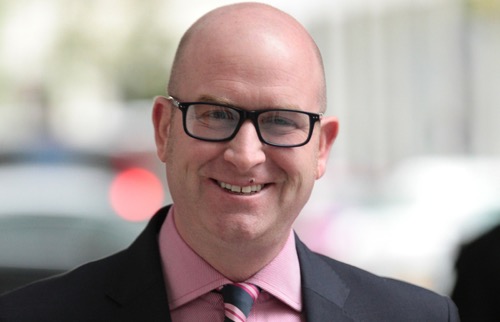
UKIP
Leader: Paul Nuttall
Members: 39,000 (as of July 2016)
Number of candidates: 378
The UK Independence Party (UKIP) is a right-wing political party with currently no representatives in the House of Commons. The party typically promotes a British unionist and nationalist agenda.
UKIP are yet to release their 2017 manifesto
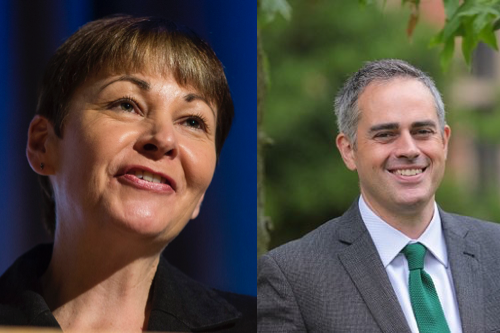
The Green Party
Leader: Caroline Lucas & Jonathan Bartley
Members: 55,500 (as of July 2016)
Number of candidates: 464
The Green Party’s ideology typically focuses on environmentalism with left-wing economic policies. They also promote progressive social policies such as animal rights, LGBT rights and reform for the current drugs policy.
The party currently has one MP within the House of Commons but are hoping to build on this.
The Green Party are yet to release their 2017 manifesto

The Women’s Equality Party
Leader: Sophie Walker
Members: Over 65,000
Number of candidates: Seven
The Women’s Equality Party is the newest of the political parties, founded in 2015 by Sandi Toksvig and Catherine Mayer. The party hopes to unite people of all genders, ages, backgrounds, ethnicities, beliefs and experiences in moving towards equality for everyone.
In their manifesto, the Women’s Equality Party promise to:
- Build a sustainable caring economy that works for everyone
- Implement a fully equal system of nine months shared parental leave on 90 per cent of pay, with a three month use-it-or-lose-it provision to each parent
- Implement full-time, high quality, free childcare for all children from the end of shared parental leave
- End violence against women and put prevention, protection and provision at the centre of all their policies
- Reform the education system and tackle the sexism of women in the media
- Make sure the healthcare system works for women and men alike, putting equality first
- Build an immigration system with gender equality and social justice at its heart
- Design trade deals that work for everybody and make sure the Brexit “does not turn back the clock on gender equality”
Read more about the Women’s Equality Party news and policies here:
 Free childcare policy needed says Women’s Equality Party’s Sophie Walker
Free childcare policy needed says Women’s Equality Party’s Sophie Walker
A policy of offering free childcare would get the economy moving for the benefit of all, Sophie Walker, Leader of the Women’s Equality Party (WEP) has stressed. Sharing the party’s views on childcare, during the BBC’s Daily Politics programme, Walker said WEP would prioritise investment in the “social infrastructure” of the country.
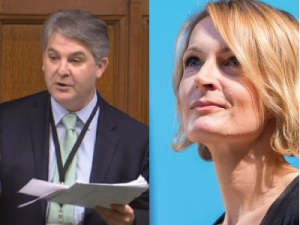 Sophie Walker to stand against MP Philip Davies
Sophie Walker to stand against MP Philip Davies
The leader of the Women’s Equality Party, Sophie Walker has announced her decision to stand against MP Philip Davies in Shipley. Following the announcement of a snap general election, Walker will stand against the Conservative MP. Both the Liberal Democrats and Green Party are in discussions about standing down in Shipley in order to give women’s equality the best chance.
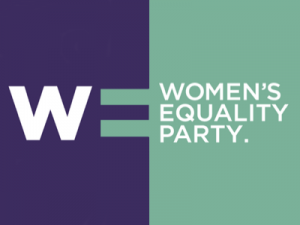 Women’s Equality Party to target first Westminster seats in snap election
Women’s Equality Party to target first Westminster seats in snap election
The Women’s Equality Party have announced that it will target its first Westminster seats in the snap General Election. The party welcomed Prime Minister Theresa May’s decision to call a snap election and will announce its target seats shortly.
Remember to register to vote by 22 May
“Almost 100 years on from the first women getting the right to vote, we still see what is likely to be a significant gap in turnout by gender. We are calling on all women to make sure they register to vote before the deadline.” – Sam Smethers, Fawcett Chief Executive


 Theresa May: “Together build a stronger, fairer, better Britain – a Britain our children and grandchildren are proud to call home.”
Theresa May: “Together build a stronger, fairer, better Britain – a Britain our children and grandchildren are proud to call home.”